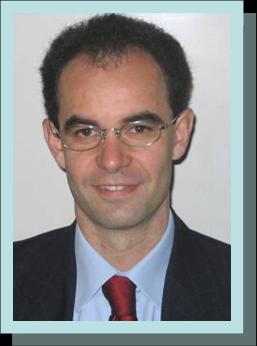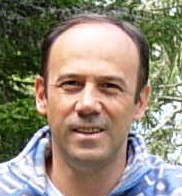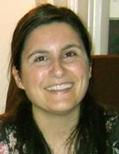Studying at the University of Verona
Here you can find information on the organisational aspects of the Programme, lecture timetables, learning activities and useful contact details for your time at the University, from enrolment to graduation.
Academic calendar
The academic calendar shows the deadlines and scheduled events that are relevant to students, teaching and technical-administrative staff of the University. Public holidays and University closures are also indicated. The academic year normally begins on 1 October each year and ends on 30 September of the following year.
Course calendar
The Academic Calendar sets out the degree programme lecture and exam timetables, as well as the relevant university closure dates..
| Period | From | To |
|---|---|---|
| Primo semestre | Sep 15, 2014 | Jan 9, 2015 |
| Secondo semestre | Feb 19, 2015 | May 29, 2015 |
| Session | From | To |
|---|---|---|
| prove intermedie (primo semestre) | Nov 3, 2014 | Nov 7, 2014 |
| sessione invernale | Jan 12, 2015 | Feb 18, 2015 |
| prove intermedie (secondo semestre) | Apr 13, 2015 | Apr 17, 2015 |
| sessione estiva | Jun 4, 2015 | Jul 11, 2015 |
| sessione autunnale | Aug 24, 2015 | Sep 9, 2015 |
| Session | From | To |
|---|---|---|
| sessione autunnale | Dec 12, 2014 | Dec 19, 2014 |
| sessione invernale | Apr 8, 2015 | Apr 10, 2015 |
| sessione estiva | Sep 10, 2015 | Sep 11, 2015 |
| Period | From | To |
|---|---|---|
| festività natalizie | Dec 22, 2014 | Jan 5, 2015 |
| festività pasquali | Apr 3, 2015 | Apr 7, 2015 |
| vacanze estive | Aug 10, 2015 | Aug 22, 2015 |
Exam calendar
Exam dates and rounds are managed by the relevant Economics Teaching and Student Services Unit.
To view all the exam sessions available, please use the Exam dashboard on ESSE3.
If you forgot your login details or have problems logging in, please contact the relevant IT HelpDesk, or check the login details recovery web page.
Academic staff
 giovanna.caramia@univr.it
giovanna.caramia@univr.it
 tamara.fioroni@univr.it
tamara.fioroni@univr.it
 annamaria.guolo@univr.it
annamaria.guolo@univr.it

Lionzo Andrea
 andrea.lionzo@univr.it
andrea.lionzo@univr.it

Peluso Eugenio
 eugenio.peluso@univr.it
eugenio.peluso@univr.it
 045 8028104
045 8028104
 francesca.rossignoli@univr.it
francesca.rossignoli@univr.it
 0444 393941 (Ufficio Vicenza) 0458028261 (Ufficio Verona)
0444 393941 (Ufficio Vicenza) 0458028261 (Ufficio Verona)
 giuseppe.trabucchi@univr.it
giuseppe.trabucchi@univr.it
 marcella.veronesi@univr.it
marcella.veronesi@univr.it
Study Plan
The Study Plan includes all modules, teaching and learning activities that each student will need to undertake during their time at the University.
Please select your Study Plan based on your enrollment year.
1° Year
| Modules | Credits | TAF | SSD |
|---|
2° Year activated in the A.Y. 2015/2016
| Modules | Credits | TAF | SSD |
|---|
3° Year activated in the A.Y. 2016/2017
| Modules | Credits | TAF | SSD |
|---|
| Modules | Credits | TAF | SSD |
|---|
| Modules | Credits | TAF | SSD |
|---|
| Modules | Credits | TAF | SSD |
|---|
| Modules | Credits | TAF | SSD |
|---|
Legend | Type of training activity (TTA)
TAF (Type of Educational Activity) All courses and activities are classified into different types of educational activities, indicated by a letter.
Mathematics (2014/2015)
Teaching code
4S00181
Credits
9
Language
Italian
Also offered in courses:
- Mathematics of the course Bachelor's degree in Economics and Business (Vicenza)
- Mathematics - lezione of the course Bachelor's degree in Economics and Business (Vicenza)
- Mathematics - esercitazione of the course Bachelor's degree in Economics and Business (Vicenza)
- Mathematics - esercitazione of the course Bachelor's degree in Economics and Business (Vicenza)
Scientific Disciplinary Sector (SSD)
SECS-S/06 - MATHEMATICAL METHODS OF ECONOMICS, FINANCE AND ACTUARIAL SCIENCES
The teaching is organized as follows:
lezione
esercitazione [A-K]
esercitazione [L-Z]
Learning outcomes
The aim of the course is to give the fundamental mathematical knowledge, necessary to the following courses in Statistics and Economics.
The course provides the classical arguments from Mathematical Analysis and Linear Algebra.
Beside the general mathematical theory the exercise lectures are intended to complete the theoretical knowledge with the adequate calculus ability.
Program
1. Basic mathematical notions
2. One variable functions
3. Limits
4. Differential calculus
5. Integration theory
6. Numerical series
7. Vector spaces, transformations and matrices
8. Systems of linear equations
9. Several variables functions
The detailed program and further educational material are available in the course web page.
Teaching supply
The course consists of 48 hour lectures (equivalent to 6 credits) and 36 hour exercise lectures (equivalent to 3 credits).
Bibliography
| Activity | Author | Title | Publishing house | Year | ISBN | Notes |
|---|---|---|---|---|---|---|
| lezione | A. Peretti | Dispense del Corso di Matematica | 2014 | (disponibili in rete nella pagina del corso) |
Examination Methods
In order to pass the exam students are asked to pass first an open answer test. A second written exam is then proposed, with 3 exercises and 5 theoretical questions. A final oral exam is required only in case of a non full sufficiency.
Intermediate test
Students have the possibility, after a half of the course, to pass a partial written exam, that will count for the final passing.
This intermediate test has the same structure as the ordinary written exam.
- It is discretionary and it does not prevent the student from refusing the result and taking the full exam.
- The student that passes the intermediate test may complete the exam by passing a similar final written test. The final score will be the mean of the two. An oral exam may be required again in case of a non full sufficiency.
- The subjects of the intermediate test will be specified in advance in the course web page. These subjects will be kept out the final test.
- Students that pass the intemediate test may take the final test within the winter session.
The intermedate test is scheduled with the intent that students tackle from the beginning the subject matter in a regular and systematic way. So they can get the advantage of passing one half of the exam. The intermediate test, in case of a failure, may also be useful to give important hints on what went wrong.
Further details may be found on the course web page.
Type D and Type F activities
Modules not yet included
Career prospects
Module/Programme news
News for students
There you will find information, resources and services useful during your time at the University (Student’s exam record, your study plan on ESSE3, Distance Learning courses, university email account, office forms, administrative procedures, etc.). You can log into MyUnivr with your GIA login details: only in this way will you be able to receive notification of all the notices from your teachers and your secretariat via email and soon also via the Univr app.






















